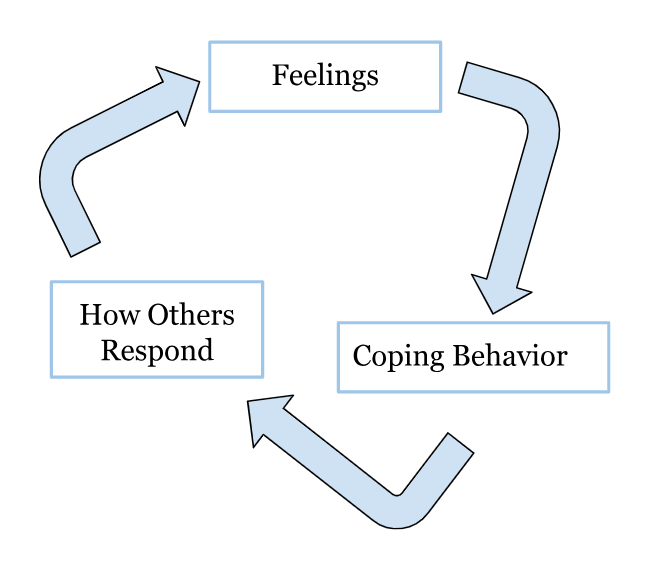Your most common couple fight is likely causing you weekly or even daily stress. Arguing with your partner can feel repetitive… and they are. Every couple has a consistent pattern to their arguments. When you can understand your pattern, you’re well on your way to creating a new one. This post will help you understand your pattern – called a “pain cycle”: a way you relate to your partner that is unique to your experience.
What is the pattern behind your arguments?
Humans are very patterned creatures. A lot of the ways you interact with people are due to the thousands of interactions you have had before. As neuropsychiatrist, Dan Siegel says, “Neurons that fire together wire together”. Our brains create well-worn patterns whenever we argue with our partners. Our brain creates patterns when fighting with our partner, recalling feelings we have felt since early childhood. When these feelings trigger us, we tend to react in ways that can be harmful to us and our partners.
The Pain Cycle – understanding your pattern as a couple
The Pain Cycle is a therapeutic technique created by Terry and Sharon Hargrave as part of Restoration Therapy. This approach is based on the belief that the foundation of relationships is rooted in our trustworthiness and identity as human beings. At various points in our lives, our trust or sense of identity may have been harmed by others, affecting how we connect with those around us. As a result, we may react in ways that are not ideal when interacting with our loved ones.

Feelings are central to every argument
Reflect on a recent argument or a painful interaction you had with someone that tends to resurface in your mind. Consider how that experience made you feel, aiming to dig deeper than just the surface emotions. Try to explore deeper than the five core emotions—fear, sadness, anger, happiness, and disgust—and see what feelings might have been underneath the surface. Did you experience any of the following emotions?
- Unworthy
- Unloved
- Unsafe
- Alone
These feelings are believed to be at the core of the deep wounds we experienced in childhood. Take a moment to reflect on when you first felt these emotions. As a child, how did these feelings affect your actions?
This reflection leads us to our next section, where we will discuss coping strategies.
Understand your coping in an argument with your partner
Our coping behaviors are direct responses to our core feelings of pain. We can develop effective coping strategies, but we may also resort to reactive coping mechanisms that no longer benefit us. In this exercise, we will focus on the latter as it relates to understanding your pain cycle. Here are some common coping behaviors that people exhibit when they experience painful feelings:
- Withdraw: do you tend to leave abruptly or “zone out” when you experience a painful feeling?
- Pursue/Blame: Do you blame yourself for blame someone else when you are feeling hurt?
- Numb: Do you use or abuse substances, devices, or people to experience a quick burst of positive feelings whenever you are experiencing feelings of pain?
- Distract: Do you deflect your feelings elsewhere or try to change the subject so that it is less uncomfortable for you? Do you draw your attention elsewhere when someone says something that hurts you?
How does your partner respond in the argument
How do others respond when you are acting out your coping mechanisms? Many people do not realize that these behaviors are connected to their pain cycle. One thing that is universally true in my work with couples and individuals is that everything you do is relational. Your coping behaviors will affect your partners and friends. How do they typically respond to your coping? If you withdraw, do they simply move on with their lives, or do they try to pursue you to find out what’s wrong? If you blame others, do they hide or shrink away from you, prompting you to chase after them for reassurance?
One step you can take to improve arguments with your partner
Take some time to draw out your own personal pain cycle. Addressing these questions can help you break the cycle of pain you may be experiencing. It’s important to understand that our feelings, coping behaviors, and the responses we receive from others can lead us back to how we initially felt. This repetitive cycle is often why it seems like nothing is going well in your life or relationships.
To interrupt this cycle, you first need to acknowledge its existence. By naming your pain and recognizing the emotions that follow, you can learn to stop the pattern and develop healthier coping strategies. This is just one step in Restoration Therapy. If you’re intrigued and would like to explore this further for yourself or with your partner, call me today to schedule an appointment.
